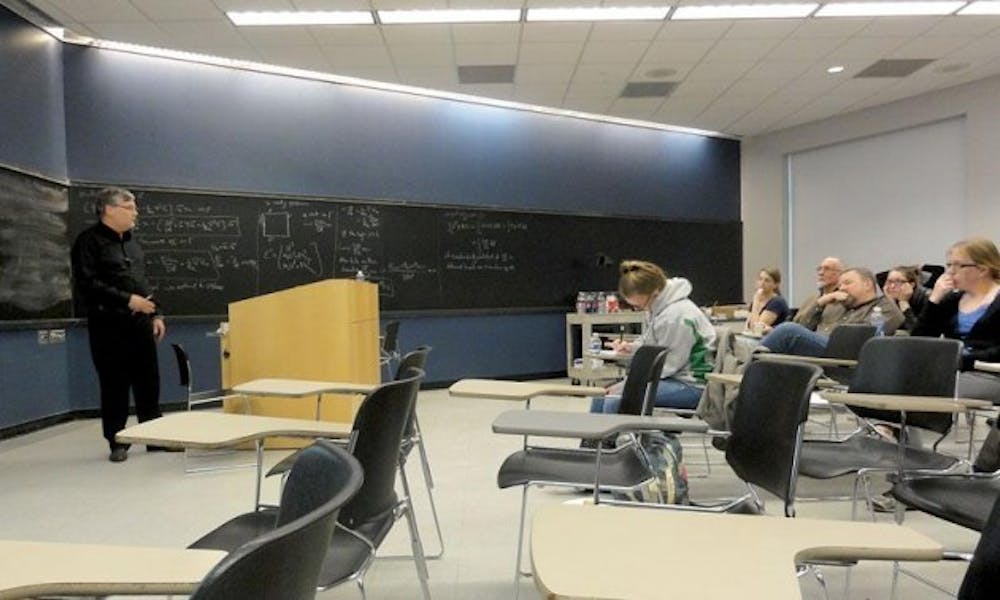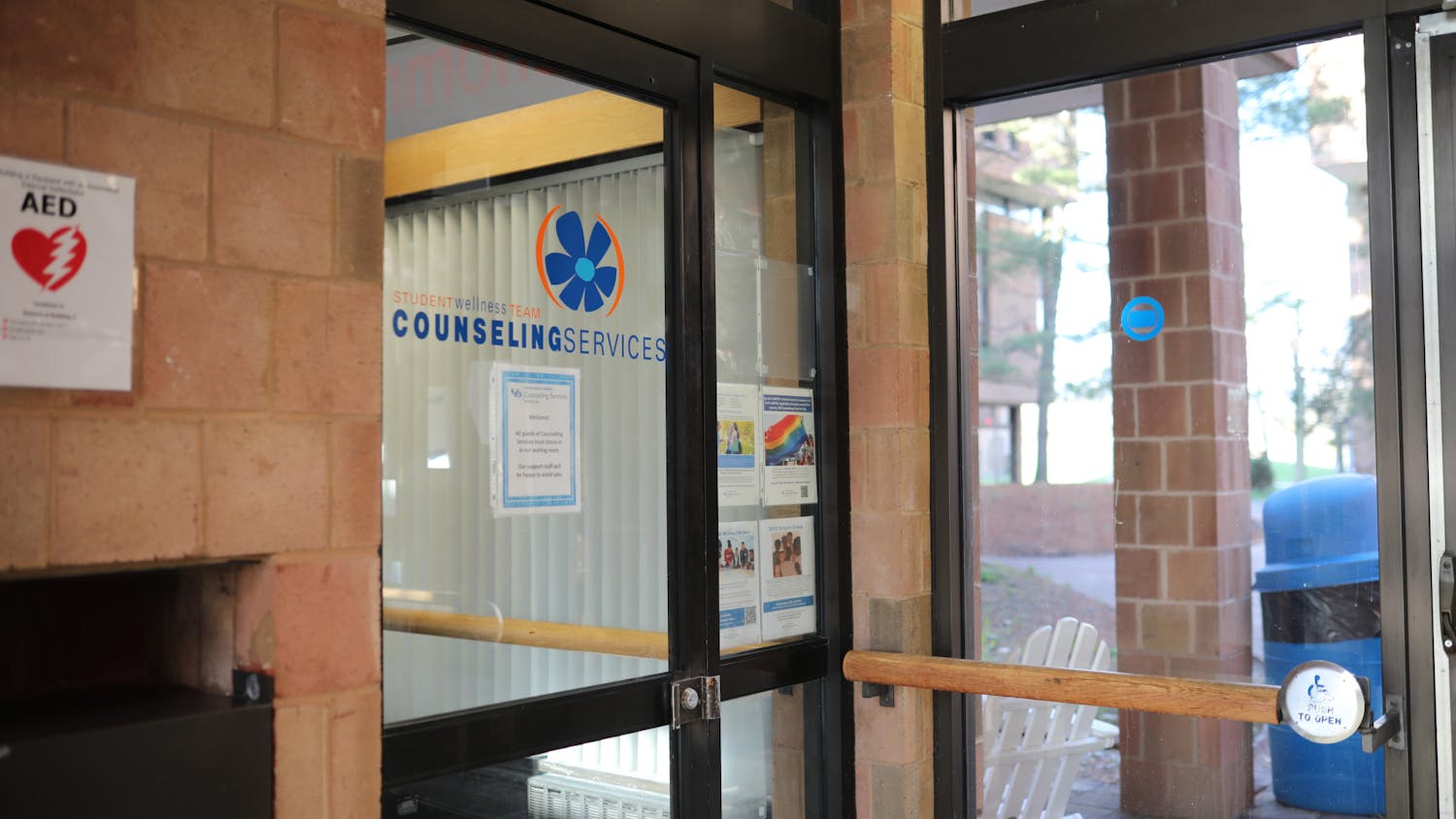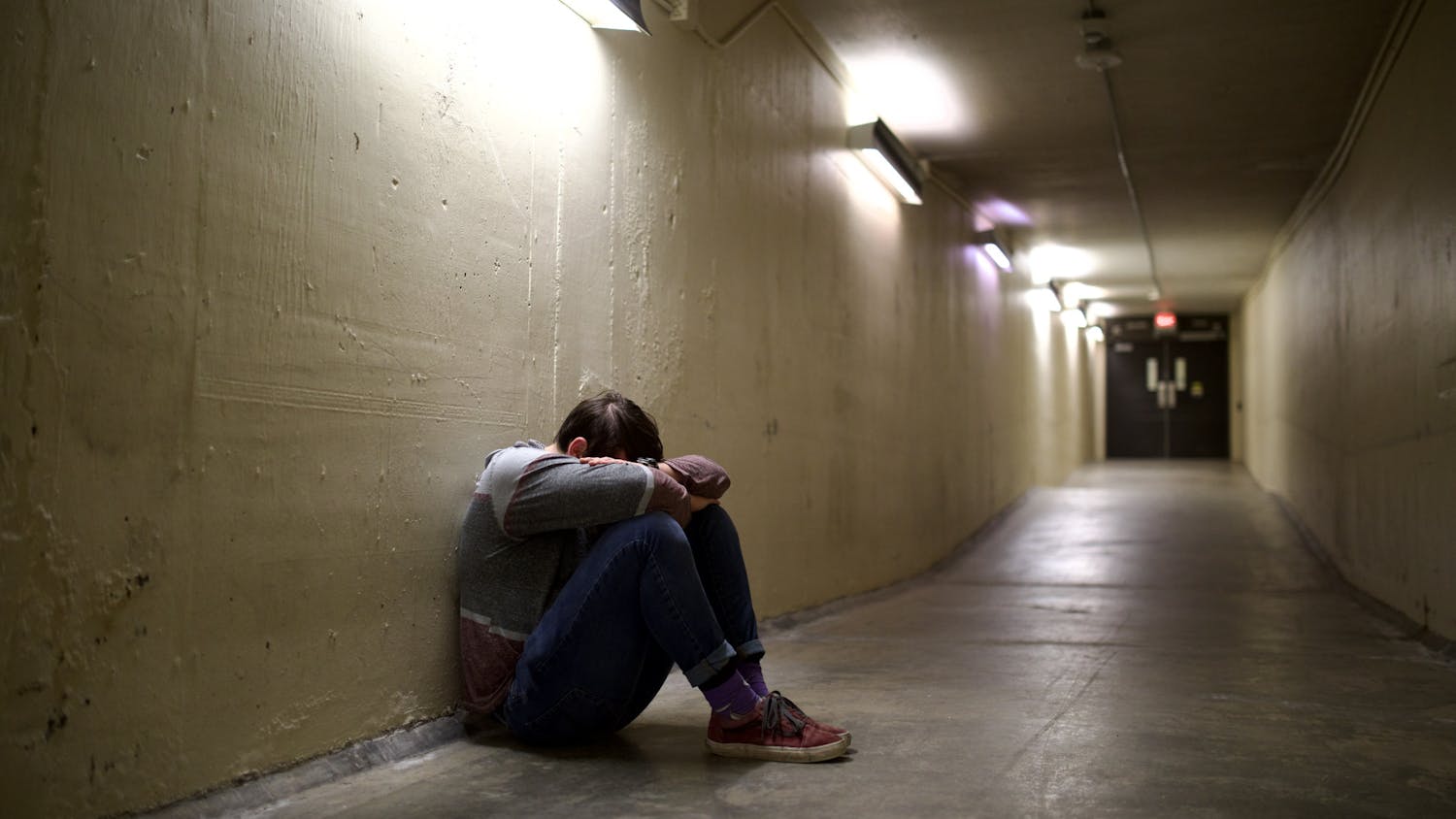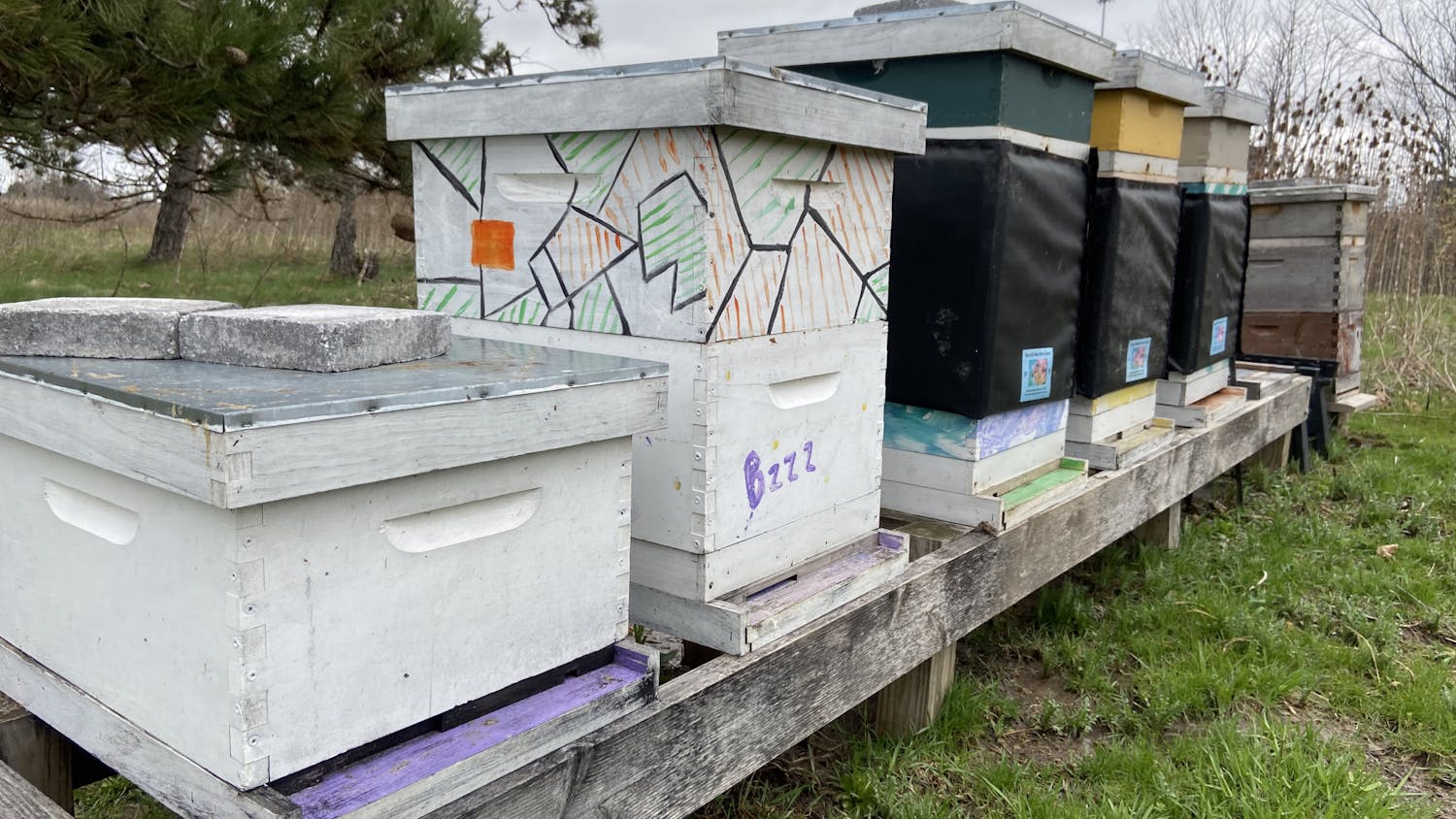Christine Burrill, a first-year graduate student in geology, heard a story about people living in the crater of a volcano in the Canary Island in class that opened her eyes to the world of geology. It wasn't what she thought.
"Everybody has this image of this geologist with the long beard, a plaid-overall shirt and the hiking boots," Burrill said. "But people can go into geochemistry and work in laboratories or petrology. They do really sophisticated analysis, like done to the microscopic level. Your stereotypical geologist is not anywhere near the whole picture in geology."
Burrill listened to this story and others told by senior-level scientists during Pegrum Colloquium, a weekly lecture series organized by Christopher Lowry, an assistant professor in the geology department.
The class is named after Reginald Pegrum, the founding faculty member of the geology department, Lowery said. It isn't a normal class.
Pegrum Colloquium is the university seminar for geology, and it is attended by the majority of graduate students and faculty in the field, but anyone can attend including undergraduate students depending on their interests, Lowry said.
Undergraduate students can also choose to attend these lectures as a one-credit course.
Lowry, with help from other geology faculty members, chooses and invites a range of speakers for Pegrum Colloquium. He brings in scientists working in the federal government, the public sector, national laboratories and other universities from around the country.
Geology is one of the most diverse fields and courses usually involve viewing PowerPoint lectures and get very in-depth on one topic, according to Burrill. She likes how this class is different from the average geology class she attends.
Pegrum Colloquium isn't only about listening to stories, Lowery said. Students who take the class must read a paper written by the weekly lecturer and write a summary of it, along with attending the talk.
"I think as an undergraduate, some of these lectures are very high-level science. So these papers are very helpful for them to understand what the talk is about because it's a lot of information to digest," Burrill said.
Burrill said students receive feedback to improve their writing, which is not done in other geology classes. This feedback will help the students if they choose to pursue a master's degree because they have to write a thesis and proposals for grants.
At the seminar, students and other attendees are welcomed by doughnuts, bagels and soda upon arrival and socialize for about 15 minutes before the lecture begins, according to Burrill. Lectures usually last around 45 minutes and are followed by a question-and-answer period.
Students are exposed to a broad range of current research from professionals, spanning topics like volcanology, climate change, environmental geology and energy.
This was the reason Eric Rayner, a senior geology major, decided to take the class.
"I had hoped to gain some insight as to what different career paths might offer me or what topic would pique my interests," Rayner said.
Students have the chance to speak directly to the lecturers and ask them personal questions about the journey to their current positions, which could influence their decisions following graduation.
Rayner aims to get experience in the field before continuing his studies toward a master's degree and plans on continuing to attend Pegrum Colloquium next semester.
The latest speaker was Paul M. Basinski, the vice president of geology and geophysics for Ardent Exploration in Houston, Texas, who holds a geology degree from UB. He currently works in the exploration and production of oil and gas.
Basinskigave a presentation with the theme of innovation and discovery, which he asserted should not only be used by geologists, but also in life.
Email: features@ubspectrum.com





